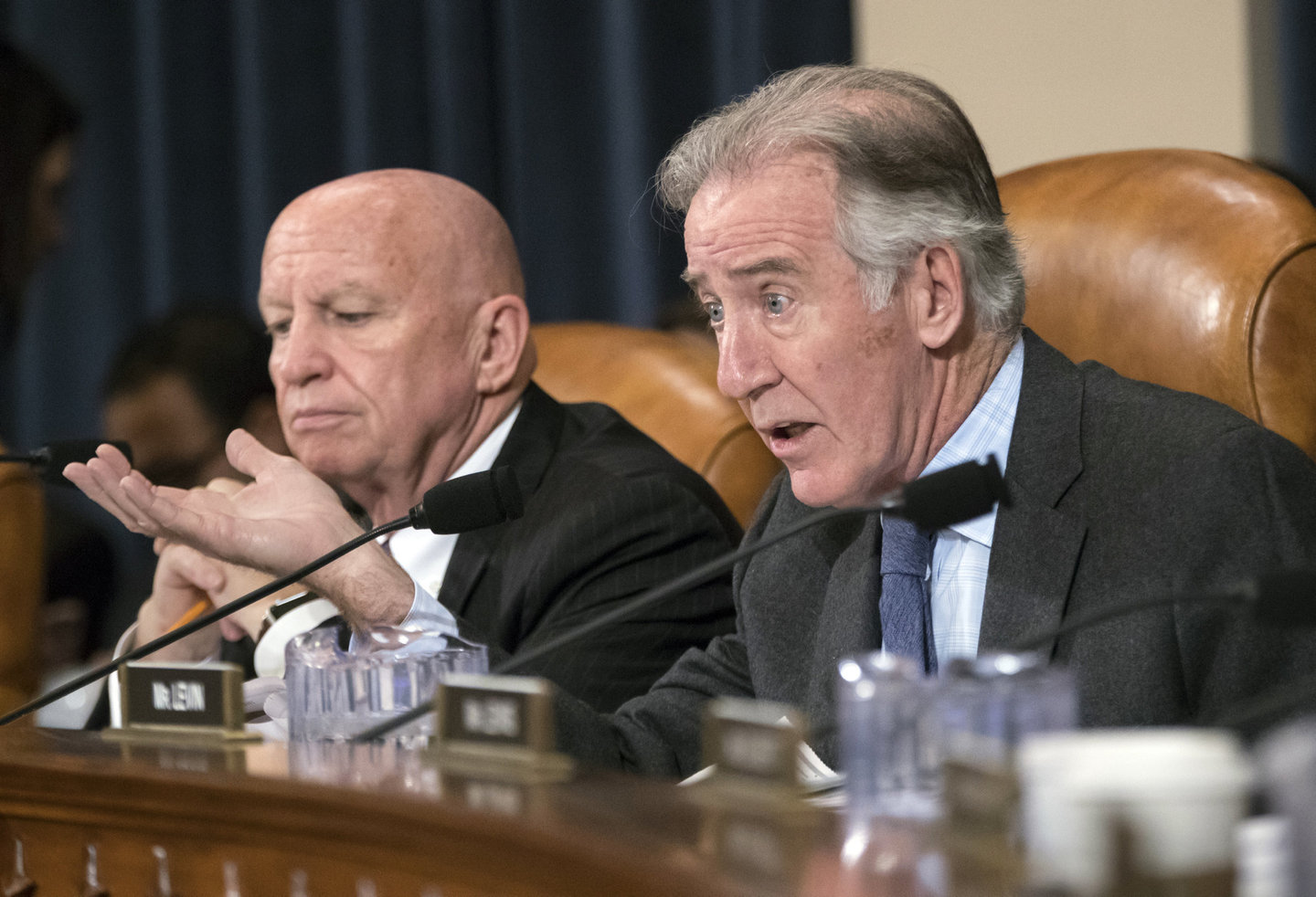U.S. House, Senate Tax Plans: Where They Ended Up
Before Republicans from the House and Senate could send a nearly $1.5 trillion tax overhaul to President Donald Trump, they had to reconcile their differences. Here’s where they ended up on some of the key aspects and contrasts of their final bill.
TAX BRACKETS
Compromise: Keeps seven brackets, reduces top rate to 37 percent.
Senate: Keeps seven brackets, reduces top rate to 38.5 percent from 39.6 percent. The reductions in personal income tax rates are temporary, ending in 2026.
House: Reduces the number of brackets to four, keeps the top rate at 39.6 percent but applies it for married couples earning $1 million annually or more instead of current $470,000 — creating a significant break for those earning incomes in between. The tax rate reductions are permanent.
STANDARD DEDUCTION
Both bills: Senate, House bills both double those levels to more than $12,000 for individuals and $24,000 for couples. The standard deduction is used by about 70 percent of U.S. taxpayers. It is currently $6,350 for individuals and $12,700 for married couples.
STATE AND LOCAL TAX DEDUCTION
Compromise: Keeps the cap at $10,000, but allows individuals and families to choose among sales, income and property taxes.
Both bills: Taxpayers would no longer be able to deduct the amount they paid in state income taxes and local property taxes from their federal taxes, triggering tax increases for many residents who itemize returns in high-tax states such as New York, California and New Jersey. The property-tax deduction is capped at $10,000, a threshold that could be enough cover many homes in upstate New York, but much fewer on Long Island.

MORTGAGE INTEREST
Compromise: No change for homeowners with existing mortgages, and allows deduction for interest up to $750,000 on a new home mortgage.
Senate: Keeps threshold for deductibility to homes purchased for $1 million or less.
House: Lowers deductibility threshold to $500,000 for new home purchases.
TAX CREDITS
Compromise: Doubles per-child tax credit to $2,000. Begins to phase it out for families making over $400,000. Preserves adoption tax credit.
Senate: Doubles per-child tax credit to $2,000. Preserves adoption tax credit.
House: Raises per-child tax credit from $1,000 to $1,600, extends it to families earning up to $230,000. Creates a $300 tax credit for each adult in a family, which expires in 2023. Preserves adoption tax credit.
PERSONAL EXEMPTION
Both bills: Eliminate the current $4,050 personal exemption. The loss of an exemption for each household member could have a major impact on families with two or more dependents (children or elderly adults), resulting in higher taxes, depending on other household factors.
INDIVIDUAL INSURANCE MANDATE
Senate: Repeals the requirement in Democrat Barack Obama’s health care law that people pay a tax penalty if they don’t purchase health insurance.
House: Does not repeal health insurance requirement tax.
ESTATE TAX
Compromise: Retains the estate tax, but doubles the exempt amount to $10 million.
Senate: Doubles the taxable threshold of a person’s estate to $11 million.
House: Phases out the estate tax entirely — to the benefit of the 5,000 or so estates that, under current law, are large enough to even be subject to the tax on an annual average.
ALTERNATIVE MINIMUM TAX
Senate: The AMT is aimed at ensuring that higher-earning people pay at least some tax. The Senate bill doesn’t repeal it but reduces the number of people who have to pay it.
House: Repeals AMT.

PASS-THROUGH BUSINESSES
Compromise: Owners of pass-through businesses can deduct up to 20 percent on earnings.
Senate: Millions of U.S. businesses “pass through” their income to individuals, who then pay personal income tax on those earnings, not corporate tax. Senate bill lets people deduct 23 percent of the earnings and then pay at their personal income tax rate on the remainder.
House: Taxes many pass-through businesses at 25 percent, plus creates a 9 percent rate for the first $75,000 in earnings for some smaller pass-throughs.
BUSINESSES
Compromise: Lower corporate tax rate to 21 percent. Expand write-offs allowed for companies that buy equipment.
Both bills: Lower corporate tax rate to 20 percent from 35 percent. Expand write-offs allowed for companies that buy equipment.
MULTINATIONAL CORPORATIONS
Compromise: “Modernizes” the “worldwide” tax system to eliminate double taxation. Eliminates the corporate alternative minimum tax. Eliminates tax incentives that encourage some U.S. companies to move overseas.
Senate: Imposes one-time tax on profits that U.S.-based corporations are holding overseas. Extends tax advantages for firms moving overseas, and requires corporations to continue paying the business version of the alternative minimum tax.
House: Imposes one-time tax on profits that U.S.-based corporations are holding overseas. Seeks to eliminate tax incentives that encourage some U.S. companies to move overseas.
MEDICAL EXPENSES, STUDENT LOAN INTEREST
Senate: Maintains ability to deduct student loan interest and some high medical expenses.
House: Eliminates deductions.
COSTS
Senate: $1.5 trillion over a decade. Revenue loss must stay below that to allow a vote using procedures that prevent a Democratic filibuster.
House: $1.6 trillion over a decade, a figure that could trigger rules to allow a Democratic filibuster.
Sources: Tax Policy Center, Congress
